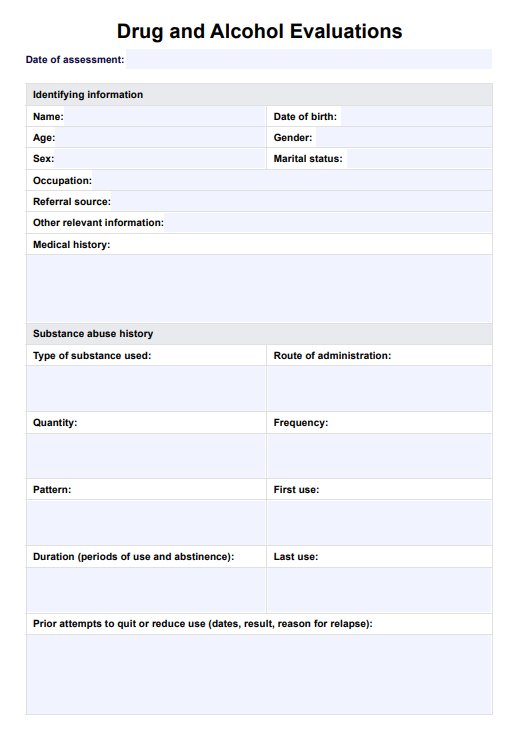Healthcare professionals, legal authorities, and employers often use Drug and Alcohol Evaluations.

Drug And Alcohol Evaluations
Gain insights into the crucial role of Drug and Alcohol Evaluations in identifying substance abuse problems. Access a free PDF download of a filled example for reference.
Use Template
Drug And Alcohol Evaluations Template
Commonly asked questions
The evaluations are used when there's suspicion or evidence of substance abuse. They may be legally required or initiated by healthcare professionals or employers.
The evaluation assesses the extent and impact of an individual's substance use. The gathered information helps design an appropriate intervention strategy.
EHR and practice management software
Get started for free
*No credit card required
Free
$0/usd
Unlimited clients
Telehealth
1GB of storage
Client portal text
Automated billing and online payments











